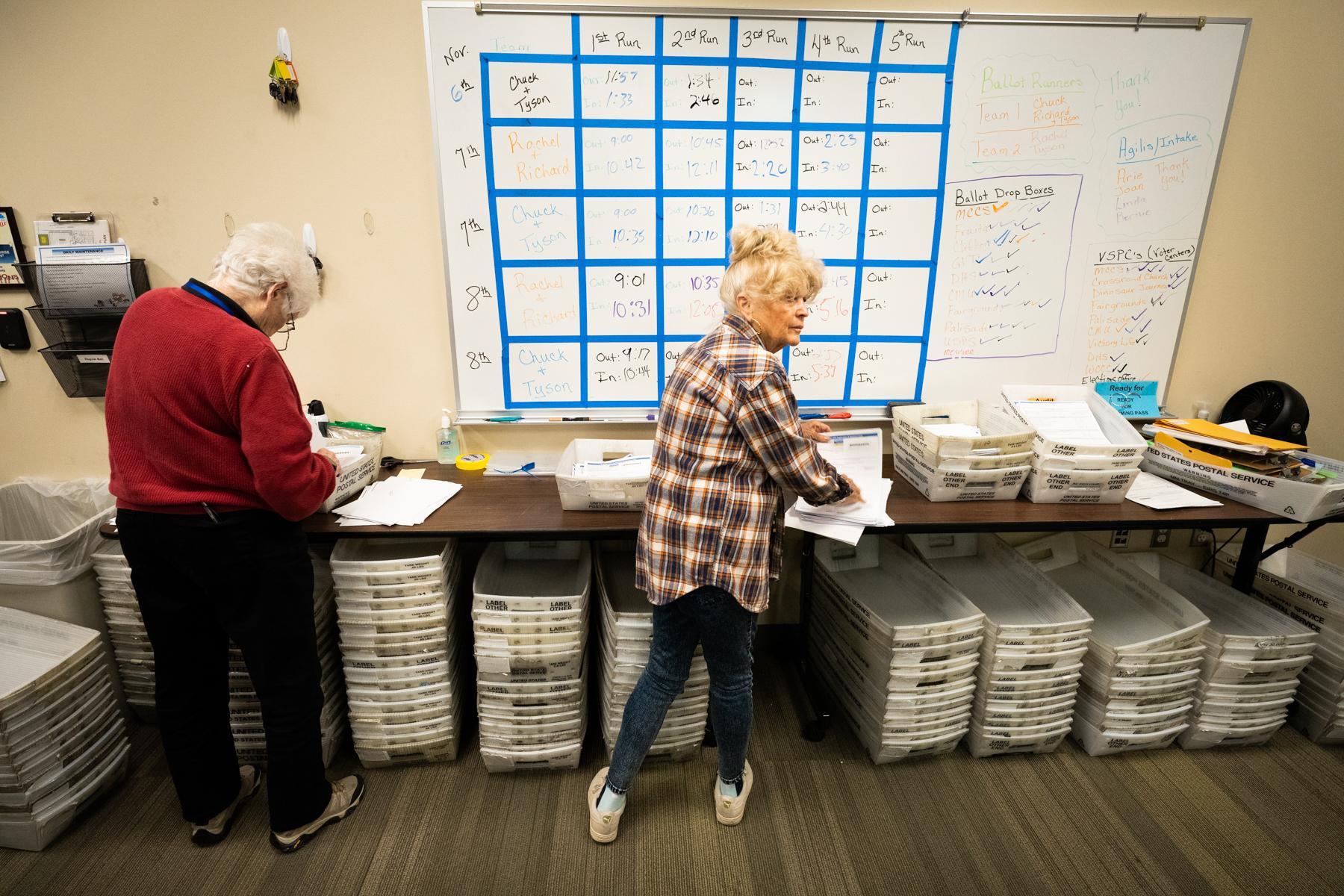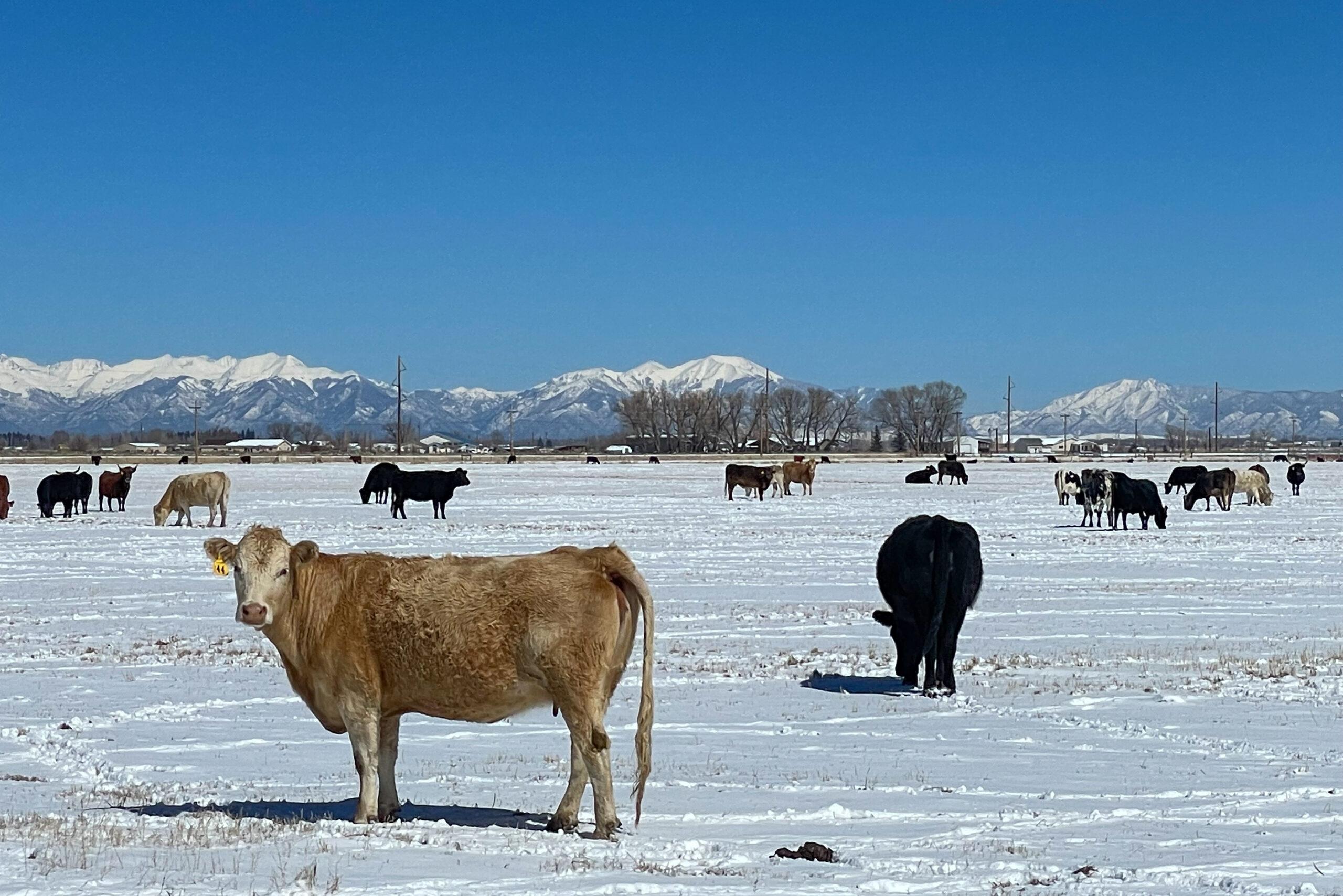
Update 6:44 p.m., Nov. 11, 2022
It is still too close to call the election between Republican incumbent Lauren Boebert and former Aspen City Councilor Adam Frisch in Congressional District 3.
As votes from counties within CO-3 slowly trickle into the Secretary of State’s office, Boebert and Frisch have both remained within striking distance of each other, with no one candidate gaining a significant advantage and the margin separating them generally well below one percent.
On Friday, Boebert pulled ahead a bit, at one point leading by slightly more than 1,000 votes.
What’s left to be counted?
The bulk of votes are due to come from Pueblo County, which contains the largest municipality in Boebert’s district.
Pueblo County Clerk Gilbert Ortiz did not provide a clear timeline on how often they’ll upload new results as the counting continues.
“When we get chances we will report,” Ortiz said in a text message.
According to the Pueblo Chieftain, approximately 7,000 ballots are expected from Pueblo County Thursday. Most of those ballots were submitted through the mail. Ballots from in-person voting could lean towards Boebert, as some conservative figures were urging Republican voters to vote in person on Election Day.
And there are likely still ballots arriving at many clerks' offices. Ballots from military and overseas voters can arrive up to eight days after the election and still be counted.
On Thursday, Frisch highlighted this potential pool of votes. “It is crucial for our democracy to count every vote,” he wrote in a statement. “In particular, we must honor and respect those who serve our country by ensuring that every military ballot is taken into account.”
Election officials and both candidates have urged voters to remain patient as tallies are made.
Candidates typically look to cure ballots when margins are this tight.
Another reason counting votes could take a while is voters have eight days to “cure” ballots with signature verification issues. Ballots with physical damage, like tears or stains, may also be eligible for curing.
County election officials reach out to voters via text, phone or mail if they’re eligible for curing. Ballots won’t be counted if voters don’t respond.
Both candidates’ campaigns will get a list of voters whose ballots couldn’t be counted. The number of ballots eligible for curing typically make up a small percentage of the total turnout. In many counties, about 2 percent of envelopes trigger a cure letter.
Boebert has not commented to the media or social media on curing ballots. Frisch, however, immediately encouraged his supporters to look out for cure letters.
What about a recount?
Colorado requires automatic recounts when a margin of victory in an election is less than or equal to 0.5 percent of the winner’s vote. For example, if Boebert’s final tally reaches 200,000 votes and Frisch ends with less than 1,000 votes behind Boebert, an automatic recount would be triggered.
The recount would have to be completed within 35 days after Election Day.
Even if the requirement for an automatic recount isn’t triggered, either candidate could request a recount — however, they will have to foot the bill.
More coverage from the 3rd Congressional District:
- It quickly became clear on Election Night that hardline conservative Rep. Lauren Boebert would face a tougher-than-expected reelection race against her Democratic challenger, Adam Frisch.
- Frisch is a moderate Democrat and former Aspen City Council member. He made a centrist pitch to voters as he faced an uphill battle in District 3.
- Residents of Colorado’s vast 3rd District woke up on the days following Election Night without knowing who would represent them in Congress for the next two years. Here's what they have to say.
- Wait, so why is it taking so long to count votes in Colorado? Here’s why — and other ballot counting questions, answered.
CPR’s Shanna Lewis, Tony Gorman and Matt Bloom contributed to this report.








